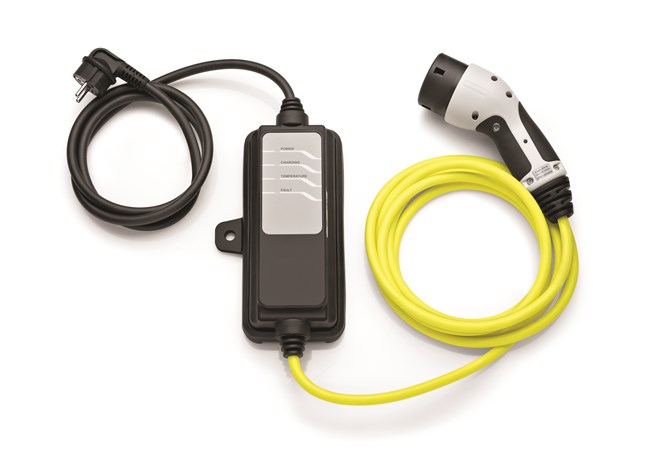We use cookies to ensure that we give you the best experience on our website. If you continue without changing your settings, we will assume that you are happy to receive all cookies on the Business Car website. However, if you would like to, you can change your cookies at any time

The start point for the best source of fleet information |
Fleets warned to ensure drivers have correct charging facilities for EVs and PHEVs
Date: 21 January 2021 | Author: Sean Keywood

Employers need to carry out due diligence on driver charging facilities when electric and plug-in hybrid vehicles are adopted, according to the Association of Fleet Professionals (AFP).
The organisation's chair, Paul Hollick, said this was especially important for PHEV drivers, who could potentially choose to not charge them and run them on petrol alone.
He said: "Our members are rapidly gaining practical experience of operating EVs and one of the things that is becoming clear is that you can't just have a short chat with a driver about the fact that they want to adopt an EV as their company car and then hand them the keys.
"Fleets need to ensure that drivers have a good understanding of their charging options, have their own charging facilities that are not just a standard socket and, in the case of PHEVs, will always charge the car even when there is option to avoid doing so.
"It's a case of carrying out some basic due diligence so that you are gaining the maximum operational and environmental benefit from EVs and PHEVs, while minimising some of the potential pitfalls."
Hollick said there were a range of norms emerging around the fitting of chargers at employees' homes.
"The model that is taking shape seems to be that mostly, drivers are paying for their own charger although, in some cases with larger employers, a third party will provide installation on some kind of preferential terms," he said.
"However, there is a different picture for drivers of electric vans, where most employers are paying for the charger to be installed on the basis that it is a job-need requirement that they are effectively stipulating.
"Around these practices, there are also some other ideas appearing. Sometimes, for example, the fitting of the charger is being added to the monthly lease rate in order to provide a high degree of affordability."
Hollick added that some fleets were making EV and PHEV drivers sign declarations covering basic points of vehicle operation.
He said employers were asking drivers to keep vehicles adequately charged, and have easy access to a charger, even when they only had on-street parking.
He continued: "The conditions for PHEVs are tighter. We've all come across a few instances in recent years where drivers have chosen these vehicles to minimise personal taxation and then used them purely as an ICE car.
"This makes them extremely expensive to operate and destroys any environmental advantage. Analysis shows that a poorly used PHEV is more expensive to operate than a petrol of diesel equivalent.
"Creating a declaration that electric power will be used as often as possible for PHEVs is a potentially effective solution to this issue and something that we have seen a number of fleets now adopt.
"It makes the driver aware of their responsibilities and that shows them that their employer takes these matters seriously."











